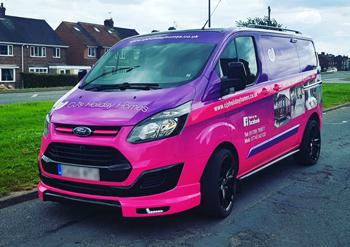 Add My Company
Add My Company
Industry calls for ‘next generation’ infrastructure plan to decarbonise Britain’s truck fleet

Government should reform its dated Plug-in Truck Grant – introduced eight years ago – to reflect the progress made by the sector in developing new zero emission truck technology and help cut CO2 by 18.8 million tonnes a year, says the Society of Motor Manufacturers and Traders (SMMT).
Following billions in investment from manufacturers, there are now 27 models of zero emission trucks available to UK operators with many more to come. While the Plug-in Truck Grant, introduced in 2016, seeks to help operators switch from conventionally fuelled heavy commercial vehicles to zero emission alternatives, models can only be eligible after undertaking an approval process that takes around two years. As a result, less than half (10) ZEV truck models on the market today are currently eligible for grants.
Given new truck purchases are critical long-term investments for hauliers operating with tight margins, transitioning to zero emission operations requires commercial benefit and operator confidence. Zero emission trucks are currently more expensive to manufacture so grants are essential if operators are to benefit from the many advantages, including potentially lower running costs, quieter operations and more positive public perception.
There are currently more pink vans on the UK roads than plug-in trucks
While 2024 saw a record number of new zero emission trucks registered, there are still just 327 vehicles in operation – meaning drivers are more likely to encounter a pink van (564 on the road) than a plug-in truck. These trucks already meet a wide range of business needs – with vehicles up to 44 tonnes and ranges of up to 311 miles – but fleets need a ‘next generation’ incentive scheme which makes it much easier for new zero emission trucks to qualify, plus a dedicated national infrastructure plan to power Britain’s road haulage fleet.
Hauliers who have already committed to fleet carbon reduction must then install depot charging or refuelling – a significant additional, but essential, cost – to ensure they can use their zero emission vehicles as easily and flexibly as their business requires. However, HGV operators do not have the same access to infrastructure installation support as other sectors, and even those who have the resources to invest in depot chargepoints face additional hurdles in terms of grid connectivity and local planning constraints. The challenge continues once out on the road as there is currently just one HGV-dedicated public charge location in the whole country, on the M61 Southbound at Rivington – preventing longer distance operators from going green.
Given truck decarbonisation is essential to the UK’s 2035 net zero targets and with the end of sale of new non-zero emission HGVs weighing less than 26 tonnes coming at the same time as the car and van sectors, urgent action is needed to create the right conditions to allow hauliers to plan their net zero investments.
Read more from: Society of Motor Manufacturers and Traders (SMMT) >
For more information on Industry calls for ‘next generation’ infrastructure plan to decarbonise Britain’s truck fleet talk to International Freight Solutions Ltd
